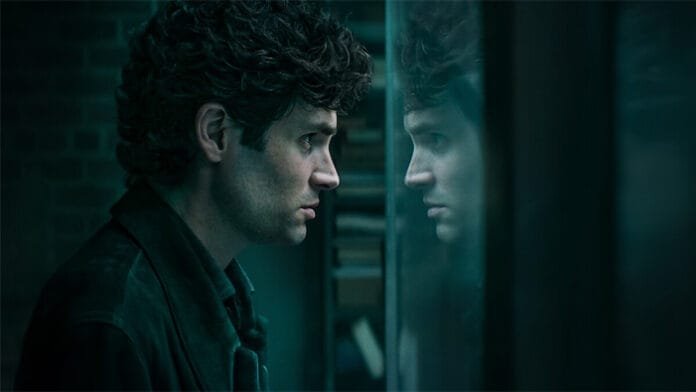Netflix’s You, once a gripping exploration of obsession, manipulation, and twisted love, stumbles to a disappointing conclusion in its final season. What started as a darkly addictive dive into the psyche of Joe Goldberg (Penn Badgley) loses its edge, culminating in a conclusion that feels more like a series of missed opportunities than a fitting end to the saga.
A Shocking Shift in Tone: Joe’s Transformation Lacks Conviction
From the beginning, You had us hooked with Joe’s charming yet dangerous persona. His chilling monologues, conflicting motivations, and the suspenseful dance between love and violence kept viewers on the edge of their seats. But in the final season, the series abandons the calculated intensity of Joe’s inner turmoil in favor of an absurdly abrupt shift. Now living openly with his new wife, billionaire Kate Lockwood (Charlotte Ritchie), Joe is no longer the shadowy figure stalking his prey. Instead, he seems like an overly domesticated version of the man we once knew—a public figure, a far cry from the elusive predator.
This transformation feels jarring. The show seems less concerned with the internal conflict that originally defined Joe and more interested in exploring the concept of his public persona—and it’s a major tonal shift that feels inauthentic. The show rushes through this change, failing to fully explore the consequences of Joe’s transformation. The result is a protagonist who seems lost in the world, no longer the sinister antihero we loved to hate.
Themes of Toxicity Fall Flat
In an attempt to modernize its commentary, You attempts to tackle themes like misogyny, toxic masculinity, and the dangers of online culture. Unfortunately, the series treats these issues with the same superficiality that it initially critiqued in earlier seasons. The season’s exploration of Joe’s shifting relationships with power and control seems less like a nuanced analysis and more like an underdeveloped subplot designed to justify his actions in the face of growing social critique.
The execution of these themes is clumsy at best, resorting to recycled plotlines and melodramatic tropes rather than offering a deep or compelling critique. The show’s reliance on increasingly convoluted twists only detracts from its deeper potential, with the narrative often stalling or confusing viewers who are more accustomed to its sharp, intelligent storytelling.
A Finale That Misses the Mark: A Lackluster Conclusion
While Penn Badgley’s portrayal of Joe remains the highlight of the series, even his masterful performance cannot save the lackluster finale. The writing, once clever and engaging, now feels muddled, as though the creators themselves weren’t sure how to wrap up the tale of their morally ambiguous protagonist. The final episodes fail to deliver the emotional payoff we’ve come to expect, and the series’ attempt to make a statement about redemption or punishment rings hollow.
Instead of a thoughtful or even tragic conclusion, we’re left with an ending that raises more questions than it answers. Rather than leaving us with a haunting reflection on Joe’s journey, the finale feels rushed, incomplete, and surprisingly forgettable.
The Fall of a Once-Great Show
At its best, You was an exploration of obsession, love, and the chaos that lies beneath the surface of seemingly ordinary lives. It provoked thought, raised eyebrows, and challenged our perceptions of morality and desire. But in its final season, the show loses its sharp edge, opting for spectacle over substance. What once felt like a brilliant meditation on toxic love now feels like a series of tired tropes that fail to land.
The legacy of You is bittersweet. For fans who stuck with the series from its thrilling first season, the finale feels like an unsatisfying conclusion to a story that deserved more. While Penn Badgley remains a highlight, even his remarkable performance cannot lift the show from the mediocrity that plagues its final chapter.
Verdict: A Disappointing Farewell
In the end, You stumbles across the finish line, its dark allure dimmed by an incoherent narrative and unfulfilled potential. For a series that once held us captive, the final season is an insultingly rubbish ending—one that’s hard to digest and even harder to forgive. As Joe Goldberg walks off into the shadows for the last time, all we’re left with is the lingering disappointment of a show that once had so much more to offer.
















